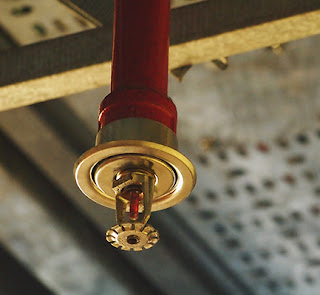Advent
in technology has helped the human race to keep themselves, their
loved ones and property protected from the impact of accidental fire.
And with the help of continuous attempt (necessary repair and
maintenance of fire protection system) to keep the fire protection
systems in working condition, it can make their living and working
place a safe haven. Today, in this post, we have tried to cover the
frequencies of repair and maintenance services that are necessary for
fire sprinkler system components to function efficiently at time of
emergency.
Parts
of sprinkler systems that require annual inspection
According
to NFPA, you need to get in touch with a proficient and reliable
company for fire sprinkler maintenance. The company and the employees
must be licensed for a specific set of jobs. They must be well
equipped with state of the art technology to offer you top quality
inspection and maintenance service for components that need
inspection after a year that includes:
- Gauges
- Main drain
- Water flow alarm
- Control valves
- Pre-action/deluge valves
- Backflow prevention components
- Hangers/bracing
- Pipes and fittings
- Sprinkler heads
- Antifreeze solution
- Alarm devices
Parts
of sprinkler systems that require quarterly inspection
The
checklist of quarterly inspection of fire sprinkler components is
quite small in comparison to annual checklist. The maximum duration
to stretch the inspection can be between 3-5 months. The components
included are:
- Alarm devices – Check that these are free from physical damage especially after the change of seasons.
- Hydraulic nameplate – check that this is secured to the sprinkler riser and legible.
Parts
of sprinkler systems that require monthly inspection
Gauges
(on wet pipe systems) – The expert will inspect the water pressure
that is necessary to maintain along with no sign of physical damage.
Alarm
valves – these should be externally inspected each month.
Parts
of sprinkler systems that require weekly inspection
- Gauges - you normally check the reading of air and water pressure of the gauges on dry, pre-action, and deluge systems.
- Control valves – you should check these weekly to ensure that they are free from leaks, locked, properly sealed, and in the open position.
Being
a caretaker of a building, you can keep these points in mind that can
help you take the necessary steps to protect buildings from fire.

